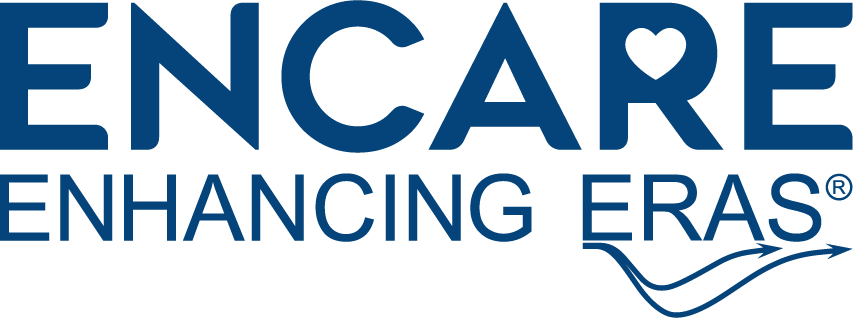

Enhanced Recovery After Surgery (or ERAS) is a multi-modal, multi-disciplinary, evidence-based care process designed to achieve early recovery for patients undergoing major surgery. All of the ERAS elements are intended to mitigate the stress response to surgery and allow for a more cohesive care pathway to allow patients to recover more quickly and completely. ERAS represents a paradigm shift in perioperative care in two ways. First, it re-examines traditional practices, replacing them with evidence-based best practices when necessary. Second, it is comprehensive in its scope, covering all areas of the patient’s journey through the surgical process.
The central elements of the ERAS® pathway address these key factors, helping to clarify how they interact to affect patient recovery. In addition, the ERAS® pathway provides guidance to all involved in perioperative care, helping them to work as a well-coordinated team to provide the best care. This includes the patients who are integral ‘partners’ in their own recovery process.
An ERAS® pathway covers many care elements throughout the perioperative journey (pre-admission, preoperative, intraoperative, postoperative, discharge, and follow-up care). According to the recently published RECOvER Checklist (K Elias et.al, 2019), these elements must then be related to an audit system for pathway compliance.
One such auditing system is the ERAS® Interactive Audit System (EIAS) provided by Encare®. This is a web-based data entry and analysis system for surgical teams to take advantage of the benefits of the ERAS® Protocol and can be used to facilitate implementation and monitor compliance to the ERAS® Protocols. With an audit system, ERAS® teams can understand their adherence to an ERAS® protocol, receive immediate feedback regarding any deviation from best practice, and analyze the clinical outcomes in real-time.
By continuous follow-up, analysis, adjustments, and improvements, the perioperative team and its management will not only ensure improved quality of care for the patient but also improve the motivation of the staff involved in the preoperative care process. The ERAS® Interactive Audit System (EIAS) becomes a crucial support in the daily decision-making process and an important quality assurance tool.
Applying ERAS® Protocols will reduce complications and save costs.
And we have the proof of that
ERAS has been shown to reduce surgical complications which leads to fewer readmissions and shorter hospital stays. This will reduce costs, increase healthcare efficiency, improve patient satisfaction, and promote multidisciplinary teamwork. By working together using the most up-to-date evidence, clinical teams can coordinate their care processes more effectively, reducing the risk of clinical variation and improving compliance to the ERAS program by gathering prospective data to demonstrate real-time service improvements.
The ERAS program can be split into various components or “elements.” The key phases of the patient pathway include:
Courtesy by Angie Balfour, ERAS Nursing Specialist, Scotland